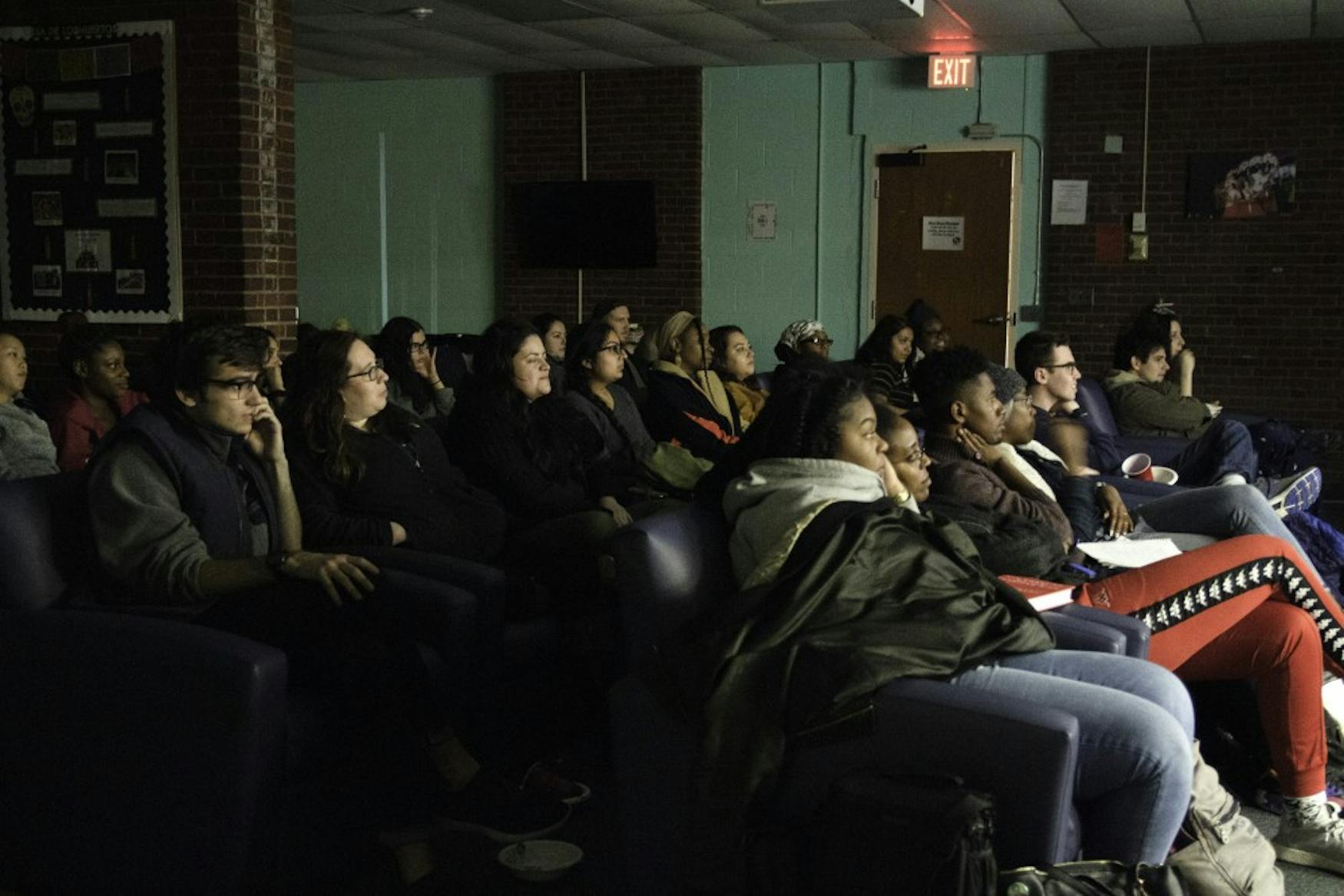AAAS brings us ‘BlacKkKlansman’
The Department of African and African American Studies (AAAS) hosted a screening of Spike Lee’s latest film “BlacKkKlansman” at the Intercultural Center last Thursday. The movie is based on a true story about Ron Stallworth, an African American man, who joined the Colorado Springs police department in the 1970s. Once accepted, he infiltrates the local Ku Klux Klan chapter over the phone by impersonating a white man who feels enthusiastic about joining the nefarious organization. The chapter president then invites Stallworth to meet, prompting the officer to enlist his Jewish colleague’s help to be his surrogate. The two use their positions to prevent any violent acts against Colorado Springs’ growing African American civil rights movement, which is led by Stallworth’s love interest in the film, Patrice.
Spike Lee has always been an angry and provocative artist, often bleeding his ideology into his films. “BlacKkKlansman” is no exception. The language used by the KKK members in the film parallel those echoed in the Trump administration. Phrases like “America first” are used throughout, imitating the growing hateful rhetoric in our country. The movie does a great job highlighting the rift between the Black and white communities while easing the tension with some comedy in between scenes of intolerance and tragedy. Lee effectively discredits the modern conception of the KKK and Black Panther movement as the extremes of both sides. While one side preaches intolerance and hate, the other is a reactionary protest that uses words rather than violence.
The film itself is worthy of winning the second-highest honor of this year’s Cannes Film Festival, the Grand Prix. The acting is great all around. If there is one thing that both sides of the conflict have in common in the film, it is that they are played by a fantastic ensemble cast led by John David Washington – son of Denzel – as the titular cop and Adam Driver as his partner. Amid the violence and hatred, both men were refreshingly gentle and collected in their roles. Their on-screen chemistry enhanced their performances, proving the two work well as characters and as actors.
Another standout performance came from Topher Grace’s portrayal of Grand Wizard David Duke. His unsettling charisma and straight face while spouting despicable rhetoric makes you reflect on the nature of cultism. While the language in the script may have made the actors uncomfortable, they did a phenomenal job playing these racist characters. Paul Walter Hauser, who stole the show in last year’s “I, Tonya,” almost does so again. Ashlie Atkinson, who plays the ambitious wife of one of the more extreme members of the Klan, is outrageous in how bigoted and racist she appears.
Spike Lee’s vision is well-realized, providing the opposing perspectives of the KKK and the Black Panther movement with respect to the same events. In the latter half of act two, we have a powerful scene where the film cuts between both movements reacting to “Birth of a Nation,” the famously racist D.W. Griffith 1915 film. One shot shows the Klan laughing loudly at racist stereotypes. The other focuses in on a discussion of the film when an old man recounts a harrowing story of his friend’s torture.
Most of the few complaints I have about the film, involve pacing. The movie could have been shorter, especially when its witty pace was brought to a full stop by the forced love interest. While I do appreciate that Patrice represented the reversion to Stallworth’s African American identity while living a life surrounded by prejudice and white police officers, her presence is uninteresting from a narrative point of view. The last few minutes of the film are powerful, showing footage of 2017’s Charlottesville riots, but they render the message too heavy-handed. Maybe that’s what audiences have come to expect from the outspoken Spike Lee, but the outright modern-day reference definitely insults their intelligence after nearly two hours of artful parallels. This is Lee’s best work since “Malcolm X” and “Do the Right Thing,” and “BlacKkKlansman” deserves most of the acclaim it has received.



Please note All comments are eligible for publication in The Justice.